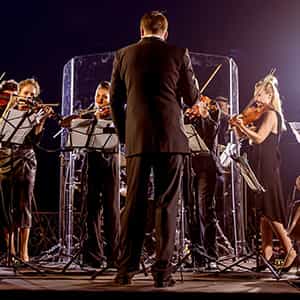

Tchaikovsky Symphony No. 6 Tickets
No Buyer Fees on Tchaikovsky Symphony No. 6 Tickets and Up to 30% Off Compared to Competitors. Learn More →
Select Location (e.g, New York)
Events Nearby
- Feb 6, 2026FRI•07:30 PMFeb6fri07:30 PM - Colorado Symphony Orchestra: Jaime Martin - Tchaikovsky Symphony No. 6 PathertiqueBoettcher Concert Hall, Denver, CO
- Feb 7, 2026SAT•07:30 PMFeb7sat07:30 PM - Colorado Symphony Orchestra: Jaime Martin - Tchaikovsky Symphony No. 6 PathertiqueBoettcher Concert Hall, Denver, CO
- Feb 8, 2026SUN•01:00 PMFeb8sun01:00 PM - Colorado Symphony Orchestra: Jaime Martin - Tchaikovsky Symphony No. 6 PathertiqueBoettcher Concert Hall, Denver, CO
- Apr 9, 2026THU•11:00 AMApr9thu11:00 AM - Minnesota Orchestra: John Storgards - Tchaikovsky Symphony No. 6Orchestra Hall - MN, Minneapolis, MN●14 Tickets Left!
- Apr 10, 2026FRI•08:00 PMApr10fri08:00 PM - Minnesota Orchestra: John Storgards - Tchaikovsky Symphony No. 6Orchestra Hall - MN, Minneapolis, MN●17 Tickets Left!
Tchaikovsky Symphony No. 6 Cities & Venues
Frequently Asked Questions About Tchaikovsky Symphony No. 6 Tickets and Events
What is the significance of Tchaikovsky's Symphony No. 6 in the classical music repertoire?
Tchaikovsky's Symphony No. 6, also known as the 'Pathétique', is significant for its emotional depth and innovative structure, marking a departure from traditional symphonic forms and exploring themes of fate and despair.
What can I expect from a live performance of Tchaikovsky's Symphony No. 6?
A live performance of Tchaikovsky's Symphony No. 6 typically features a full orchestra, dramatic dynamics, and emotional intensity that brings the music to life, often leaving audiences deeply moved.
Are there any notable conductors or orchestras known for performing Tchaikovsky's Symphony No. 6?
Yes, many renowned conductors and orchestras, such as the Berlin Philharmonic under Herbert von Karajan and the London Symphony Orchestra, are known for their exceptional interpretations of Tchaikovsky's Symphony No. 6.
What themes are explored in Tchaikovsky's Symphony No. 6?
The themes in Tchaikovsky's Symphony No. 6 often revolve around human emotions, particularly sorrow, existential crisis, and the inevitability of fate, culminating in a poignant and reflective conclusion.
How does Tchaikovsky's Symphony No. 6 differ from his other symphonies?
Tchaikovsky's Symphony No. 6 is distinct from his other symphonies due to its somber tone, the use of a more personal and introspective approach, and the incorporation of a slow, mournful finale that departs from traditional symphonic endings.
What are the key musical elements of Tchaikovsky's Symphony No. 6?
Key musical elements of Tchaikovsky's Symphony No. 6 include rich orchestration, expressive melodies, contrasting dynamics, and innovative use of harmonic language that enhances the emotional impact of the work.
Can you describe the structure of Tchaikovsky's Symphony No. 6?
Tchaikovsky's Symphony No. 6 is structured in four movements, with the final movement being a slow Adagio lamentoso that is unconventional for symphonic form, creating a unique emotional arc throughout the piece.
What impact did Tchaikovsky's personal life have on Symphony No. 6?
Tchaikovsky's personal struggles, including his feelings of isolation and melancholy, heavily influenced Symphony No. 6, infusing the work with a sense of urgency and emotional resonance that reflects his own experiences.
What is the historical context surrounding the composition of Tchaikovsky's Symphony No. 6?
Composed in 1893, Tchaikovsky's Symphony No. 6 was written during a tumultuous period in his life, shortly before his death, reflecting his complex emotions and the changing political landscape of Russia at the time.
Why is Tchaikovsky's Symphony No. 6 often associated with the concept of fate?
Tchaikovsky's Symphony No. 6 is often associated with fate due to its thematic exploration of destiny and the inevitability of life's struggles, particularly expressed through its haunting melodies and the poignant finale.

